#steve lillywhite
Explore tagged Tumblr posts
Text

David Byrne, Herbert Vianna & Steve Lillywhite (1989)
#david byrne#david byrne brasil#herbert vianna#steve lillywhite#os paralamas do sucesso#talking heads#80s
41 notes
·
View notes
Text

Morrissey - Billy Budd (1994) Morrissey / Alain Whyte from: "Vauxhall and I" (CD|LP) "Billy Budd" (Promo CD Single)
Alternative
JukeHostUK (left click = play) (320kbps)
Personnel: Morrissey: Vocals Alain Whyte: Guitar Boz Boorer: Guitar Jonny Bridgwood: Bass Woodie Taylor: Drums
Produced by Steve Lillywhite
Recorded: @ The Hook End Recording Studios in Oxfordshire, England UK between June - August of 1993
Album Released: on March 14, 1994
Parlophone Records (UK) Sire/Reprise Records (US)
Album Released: on March 14, 1994
Parlophone Records (UK) Sire/Reprise Records (US)
4 notes
·
View notes
Text
#OTD in 2000 – A boating accident in Mexico claims the life of singer Kirsty MacColl.
‘The full details of Kirsty’s injuries are too awful for me to describe. Apparently the paramedic threw up on arriving at the scene. But two boys have to live with those last memories of their mother for the rest of their lives.’ –Jean MacColl Kirsty MacColl, well-known female recording artist, was scuba diving in Mexico off Cozumel Island with a friend (James Knight) and a dive master (Ivan…

View On WordPress
#Cozumel#Croydon#Ewan MacColl#Guillermo Gonzalex Novo#James Knight#Jean MacColl#Jean Newlove#Kirsty MacColl#London#Mexico#Shane MacGowan#Steve Lillywhite#The Percolito#The Pogues
6 notes
·
View notes
Text
youtube
Tony Levin ended up in so many different places the question here should have been then about those he did not manage to play for thanks to reasons. What does means to say is that him working with Joan Armatrading doesn't surprise me. Then again, the list of her collaborators also contains many varied names, so Levin playing on one of her most successful albums? Sure, why not? However, I ask myself how did Mr. Levin see himself in these jobs. Think of this – he somehow ended up working on many biggest successes of the musicians he decided to cooperate with. Did he feel like was partially responsible for their triumphs? I agree, he probably just took the offers, did his thing and moved towards his next destination.
#Youtube#joan armatrading#the key#the key song#tony levin#jerry marotta#daryl stuermer#larry fast#steve lillywhite#80's music#rock
0 notes
Text
Album Review: Dark Evils Desecrate by Tanin’iver (Morning Star Heresy)
Due for release on the 25th of January, Australian extreme metal outfit, Tanin’iver, bring their fourth album titled Dark Evils Desecrate. Dark Evils Desecrate is the fourth full length album from Australian entity Tanin’iver, the extreme metal creation of Steve Lillywhite. A year in the making and three years on from the last Tanin’iver album, The Lucifer Effect, Dark Evils Desecrate sees Steve…

View On WordPress
#Australian#Black Metal#Blackened Death Metal#Dark Evils Desecrate#Death metal#extreme metal#Liam Mohor#Morning Star Heresy#New Metal#New Music#Steve Lillywhite#Tanin’iver#The Early Kabbalah#The Lucifer Effect
0 notes
Text

Siouxsie and The Banshees- The Scream (Post-Punk) Released: November 13, 1978 [Polydor Records] Producer(s): Siouxsie and The Banshees, Steve Lillywhite
youtube
#post-punk#70s#1978#Siouxsie and the Banshees#Siouxsie & The Banshees#Polydor Records#Polydor#Steve Lillywhite#Jigsaw Feeling
0 notes
Text


The Pogues feat. Kirsty MacColl - “Fairytale of New York” (1987)
Thirty-seven years ago today, on November 23rd, 1987, “Fairytale of New York,” the lead single from If I Should Fall from Grace with God, the third studio album by the Pogues, was released. With its origins stretching back to 1985, the song had a trying gestation period to reach its final release. In its first recorded incarnation, the female role was performed by original Pogues bass player Cait O’Riordan, but eventually went to the wife of then-Pogues producer Steve Lillywhite, singer/songwriter Kirsty MacColl. Named after the 1973 novel by J.P. Donleavy, the track’s operatic (possibly internal) dialogue, a harsh reminiscence of lost hopes while in the drunk tank, struck a chord and was an immediate success. While the song has never been a UK No. 1, peaking at No. 2 in its initial run, the enduring track has been in the UK top-20 twenty times since its release, including every year at Christmas since 2005. As unlikely as it may seem that one of the Western world’s favorite modern Christmas songs is by an iconoclastic Irish punk/folk band, it is difficult to think of anyone else that could have so deftly combined such a gently lilting Broadway melody with the painful realities of the downtrodden that makes the tune so beloved, and it may very well be the song that ultimately defines the Pogues. As stated by the song’s co-author Shane MacGowan, “It’s our ‘Bohemian Rhapsody.’”
#music#video#the pogues#kirsty maccoll#anniversaries#1980s#fairytale of new york#if I should fall from grace with god
12 notes
·
View notes
Text
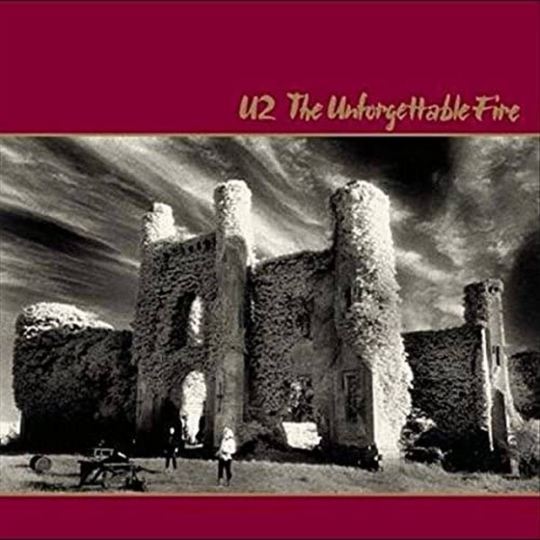
Storia Di Musica #327 - U2, The Unforgettable Fire, 1984
L'ultimo edificio di questa piccola carrellata di dischi che ne hanno uno in copertina ci porta nella Contea di Westmeath, nel cuore d'Irlanda, con le rovine di un castello, quello di Moydrum, situato nei pressi della cittadina di Athlone. Lì quattro ragazzi irlandesi, insieme a quello che diventerà il loro amico e fotografo per i successivi quattro decenni, Anton Corbijn, posano per la copertina di un disco che nelle loro intenzioni doveva rappresentare una svolta concettuale e musicale. È facile d'altronde mettere a confronto le prime copertine degli U2 con questa, e rilevarne la differenza concettuale: lo sguardo dolce di Peter Rowen, il fratellino di Guggi, amico di Bono, che capeggia in Boy (1980), la band ripresa in October (1981) sullo sfondo il porto di Dublino, e lo sguardo, rabbioso e drammatico, dello stesso Peter Rowen in War (1983, una delle copertine più iconiche del decennio). Dopo il tour di War, Bono, The Edge, Adam Clayton e Larry Mullen Jr. cercano una svolta. Bono, con una mossa che riprenderà anche in futuro, annunciò all'ultimo concerto di quel tour che la band necessitava di "essere sciolta".
Un rinnovamento che passa da un nuovo approccio alla composizione e da una guida in produzione musicale che sia diversa da Steve Lillywhite, che li aveva seguiti nei primi tre capitoli della loro storia. The Edge, affascinato dai suoi lavori discografici e dal suo ruolo di produttore per i Talking Heads, chiede di contattare Brian Eno. La scelta non sembrava affatto sensata: una band sanguigna, epica, con il guru della musica ambient, della sottrazione emotiva. Lo stesso Chris Blackwell, il proprietario della Island, la casa discografica che li aveva scoperti, era scettico. E lo stesso Eno all'inizio lo era. Ma l'ascolto del loro live Under The Red Blood Sky lo convinse a provare. Porta con sé un tecnico del suono geniale, anch'egli musicista, il canadese Daniel Lanois, incaricato degli aspetti materiali e tecnici delle registrazioni, e indica alla band un orizzonte che se ancorato alla passione, all'epica, alla forza della loro musica originaria, la amplia in scenari vasti, che diluiscono i colori e regalano emozioni nuove all'ascolto.
Registrato nella sala di ballo, trasformata in studio di registrazione, di un altro castello, lo Slane Castle, e presso gli studi di Windmill Lane a Dublino, The Unforgettable Fire prende il nome dal titolo di una mostra fotografica itinerante giapponese sui disastri di Hiroshima e Nagasaki, che i quattro videro al The Peace Museum di Chicago. È una sensazione diversa ascoltare il suono, ricco, cinematografico, di A Sort Of Homecoming che apre la scaletta. Un suono arioso, sostenuto, con l'abbandono della batteria "militaresca" dei lavori precedenti, la chitarra di The Edge che inizia a disegnare paesaggi luminosi, il supporto robusto del basso di Clayton e Bono che si lancia nella descrizione di paesaggi spirituali niente male: hai fame di tempo\tempo per guarire e desiderare, del tempo\e senti la terra muoversi sotto di te\il paesaggio di sogno che hai creato (...) le mura della città sono cadute\la polvere, un velo di fumo tutt'intorno\volti arati come i campi che un tempo\ non opponevano resistenza. Dello stesso tenore, con quest'aggiunta espressionista, sono Wire (addirittura pensata solo come abbozzo nel testo, e registrata con Bono che in parte improvvisa durante il canto) la spettacolare The Unforgettable Fire, e Indian Summer Sky, che è l'espressione anglofona per l'Estate di San Martino. Canzoni che tra l'altro sfuggono alla struttura classica con la ripetizione del ritornello, spesso non citano il titolo nel testo e entusiasmano, spesso ancora oggi, per il lavoro di addizione sonora e di sensazioni che lasciano. Ma è un album che contiene tanto altro: due strumentali, 4th Of July (che è il giorno della nascita della prima figlia di The Edge, e registrata quasi di nascosto da Eno mentre Clayton e il chitarrista improvvisavano) e MLK, dedicato a Martin Luther King, al quale è dedicato anche il brano simbolo del disco, e primo singolo dell'opera, Pride (In The Name Of Love), il cui video musicale fu girato nella sala da ballo allestita a studio di registrazione dello Slane Castle. C'è la poesia dolce e fluttuante di Promenade, un gioiellino che racconta il flusso di pensieri durante una passeggiata, c'è l'esperimento di Elvis Presley And America: basata sulla traccia base rallentata di A Sort of Homecoming, è una improvvisazione canora di Bono, che immagina il Re, ormai sul viale del tramonto, che ricorda il suo passato, specialmente il suo rapporto con Priscilla, e fu una single take lasciata così, grezza e con la voce che dà la sensazione di un'eco più lontana e oscura. Rimane un ultimo grande pezzo: Bad fu scritta da Bono in ricordo di un suo compagno di scuola morto di overdose da eroina il giorno del suo 21° compleanno, è drammatica nel suo crescendo emotivo e diviene una sorta di prototipo di stile U2\Eno\Lanois. Diventerà uno dei momenti clou dei concerti negli anni a seguire.
Un disco dalle tinte sfocate, dai paesaggi sonori sfumati, dalla musicalità complessa poteva sembrare un azzardo per una band considerata così sanguigna. Invece fu un successo: primo disco degli U2 al primo posto della classifica britannica, in top ten in quella americana, e soprattutto la sensazione che la piantina musicale che qui nasce crescerà subito e velocemente, per certi versi in maniera fragorosa, per cambiare il volto alla musica dei decenni a venire. Ma probabilmente questo non lo sapevano ancora.
20 notes
·
View notes
Text

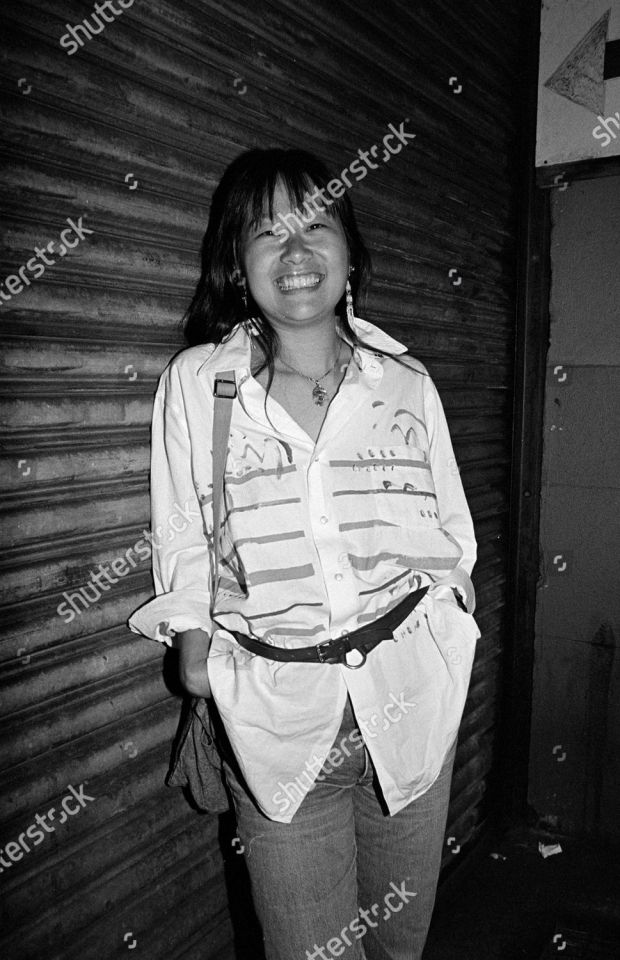
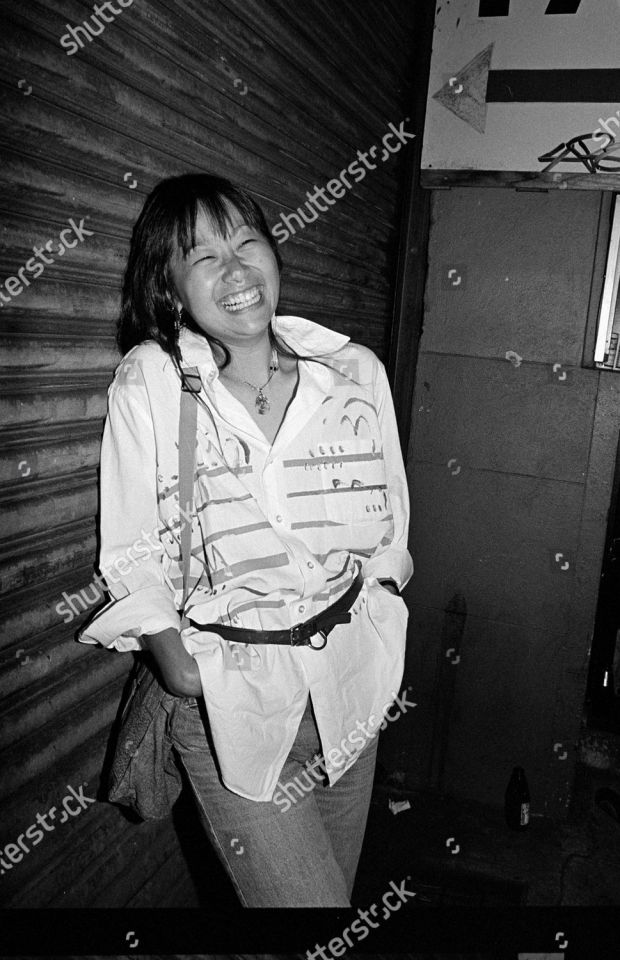
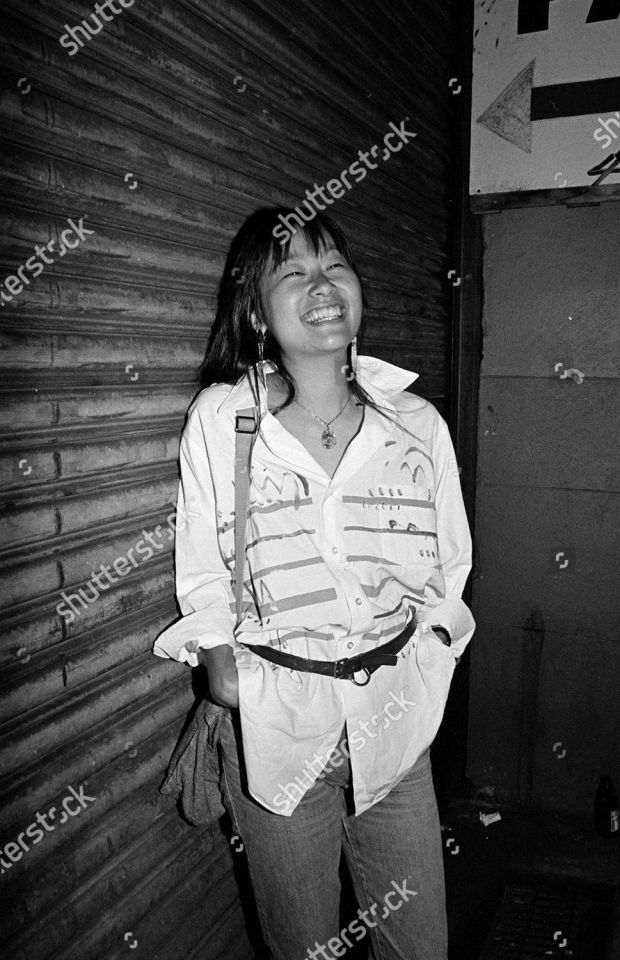
June 7, 1983 - May Pang, record producer Steve Lillywhite, Stevie Ray Vaughan with his wife Linnie, and actor Matt Dillon backstage at First City in New York City.
#May Pang#1983#1983 May#Steve Lilywhite#stevie ray vaughan#linnie ray vaughan#matt dillon#1980s#1980s May#producer#secretary#personal assistant#author#photographer#muse#jewelry designer#backing vocalist
12 notes
·
View notes
Text
TOYAH TALKS LOVE IS THE LAW IN 2024

From the DVD of the Love Is Law reissue 2024
TOYAH: 1983, at the beginning of the idea of recording, at the very, very beginning, I felt very strongly that I wanted a writing process that represented the writing process we had with “Sheep Farming In Barnet” and “Blue Meaning” where we were left alone as creative artists and musicians to just write and see what would happen. So the best way we felt to do this was to move everybody into my house
I had a room that was really a dining room, but had been converted into a gym. We moved an entire studio into the gym. Simon Darlow, who I have known since I was 18, and he was 17, moved into the house with us. Joel Bogen (guitar) lived about 500 yards down the road, so he could get to me very quickly
We decided that we would start writing every day from 10 am. I was taking on a play at that time called "Trafford Tanzi" (below), but once that opened I didn't leave the house till 4.30. I finished the play around 11 pm and a car would take me to the Marquee Studios, and we'd work through the night. Now this may sound exhausting, but it was actually exhilarating. Absolutely exhilarating. To add Simon Darlow into the writing process took attention away from me and Joel. Joel always wanted something to go one way and I was always pushing in another
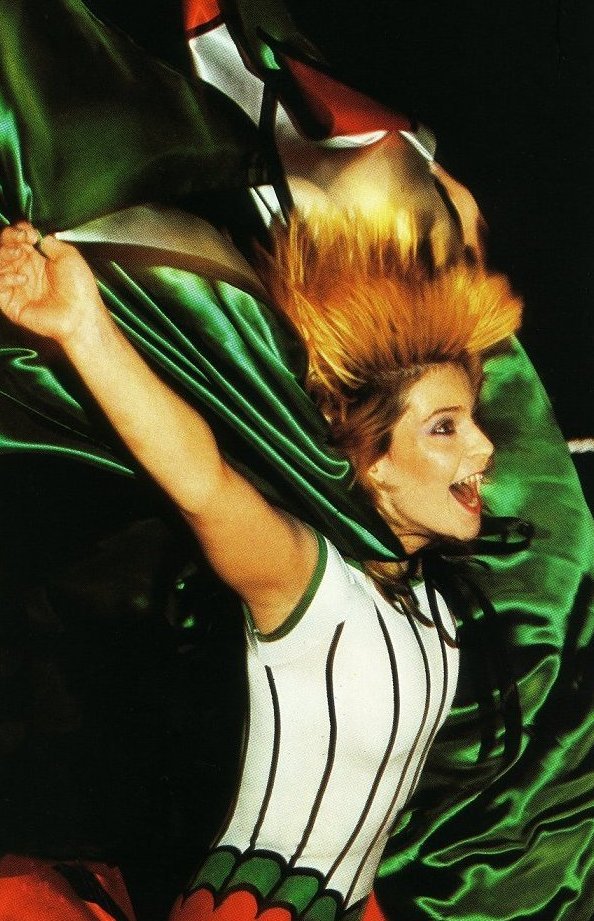
It wasn't that we were completely polarized, because we were great friends, but “The Changeling” was very challenging in that I felt I was edged out of it in under certain circumstances. That was mainly because Steve Lillywhite, who's a very good man and a brilliant producer, I don't think understands women So I didn't ever want to be in that situation again where I felt like an outsider on my own project. So by moving everyone into my house I was incredibly happy. It was breathtakingly spontaneous, creative. We just could not record the ideas quick enough. Having Simon Darlow there, who was a remarkable catalyst, having him back in my life, because he did some keyboard work on “The Changeling” and the moment he walked into the studio, it's like, “thank fuck! It's like my brother has come home!” He instantly bought me back into the fold. Having him in our house, we would actually get up early and write a song like “Haunted”. I've been working with Simon Darlow recently, and he said “you do know we wrote that at about six in the morning in your office?” and I had no memory of that. Because he was always there, and he was always with me, and he was a really supportive friend It meant if I said something like, “oh gosh, I feel haunted by this”. He said, “That's a song! It's a song” Let's do it!” Got the keyboard out and we'd start jamming. He made everything possible for this album with his enthusiasm. He hadn't been touched in any way or tainted by how outsiders can influence a process negatively. He was just like a puppy with a new toy. He was full of energy, and it really, really helped me and Joel a lot "Trafford Tanzi" was a media hit. It was a massive critical hit for me, and slightly highlighted by the fact that on Broadway Debbie Harry opened it the same week, and the critics on Broadway virtually closed it within a week. In Japan a version opened and the critics virtually shut it down within a week there. But our version - it's about an English, northern couple who sought their wedding problems out in the wrestling ring. So it was quintessentially an English, British project and I think that's why it worked
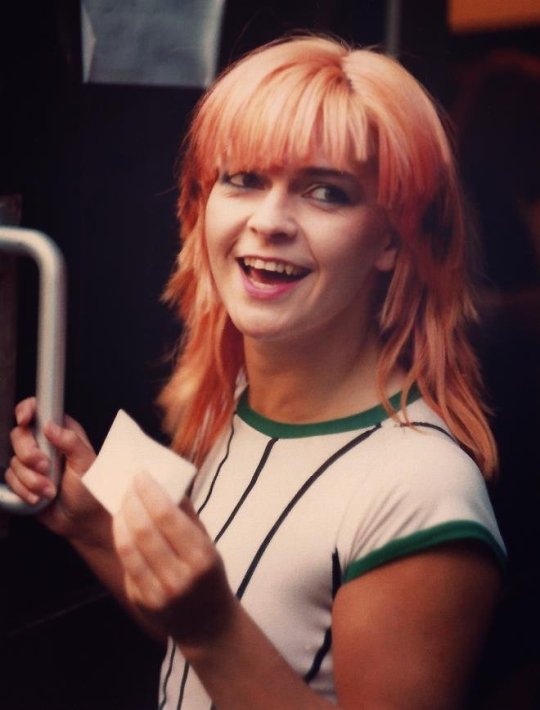
The music was great. It was a musical. It was completely sold out for the entire run, and it saved the Mermaid Theatre. It invigorated me. I think part of it, as the artist I am, is I needed to move between genres to find out my voice at that time, and it invigorated me to have a lot of personal freedom at that time. I traveled without security. I didn't have security at the theatre It was a remarkable event that for five months it became a campsite outside the Mermaid Theatre with up to 130 to 300 fans sleeping rough outside the theatre. There was a tunnel, a road tunnel, that went along beside the theatre that was graffitied so often I had to pay for it to be painted twice The fans were fantastic, and a lot of them became couples and it was a very lovely experience. So when I arrived, there was a crowd waiting for me, and I stayed and I talked with them as much as I could, probably half an hour to an hour each time. In the interval, I would go out and talk to them. You've got to bear in mind there's always been a process with me if you don't schedule a an eating I don't eat. So I used to go out with my cup of Complan, which is a meal supplement in the interval, and have my Complan while talking to them I found it very, very grounding. It tuned me in to who and what they were and their mental frailties, as well as their joys and how they saw me and what I gave to them. Because you can get so isolated as an artist and you can get disillusioned or illusional about things. You just get the wrong impression. To be with them helped me become more grounded and bit more street level as well That's really important, I think, to get your ideas from the street rather than from the latest wonderful dinner at the Grosvenor Hotel. It's much more important. Eventually, when we started moving to the Marquee to record, they followed. It was a small group that followed. The Marquee was down a very narrow driveway, and they couldn't fit 300 tents in, but some followed. That was a very nice experience too, because we could play them stuff on "Love Is The Law". We called about 21 of them in and said “you’re going to sing the chorus now” I remember they all went from being really cocky, sure of themselves people into quiet as mice, slightly terrified, not understanding the process. We were lovely with them, and (the producer) Nick Tauber was fabulous with them. They were just standing at the mics like rabbits in the headlight. But we got it and all we needed them to do was chant “love is the law”and they did it brilliantly. It's just so lovely that they are there, on that recording With this huge encampment outside the theatre they started to call themselves The Angels and Demons, which gave them their identity. It showed that they were there for a purpose, and there was a purpose in what they did every day. So The Angels and Demons came into the world at that point

The most collaborative I have ever experienced with the band was in the very beginning when Pete Bush, Joel Bogen and I would meet every Sunday and we'd write. Then when we got signed we were given time in a rehearsal studio to write. We were writing for months on end and occasionally going out and doing a series of gigs. For "The Blue Meaning" we had to do some of the writing in Battle, Hastings while we were recording. "IEYA" had only ever been an encore improvisation up until the point we went into the studio to record "The Blue Meaning" So there was a long writing and recording process actually in the studio, which for me doesn't help. You get so pressurized and the anxiety - you're in overload. Then with "Anthem", by some magical alchemy, the band was sending me backing tracks of the songs that they'd written together with no vocals on. The alchemy was just extraordinary. I think that's partly because of the musicality of Phil Spalding (bass), Nigel Glockler (drums), obviously Joel and Adrian Lee (keyboards). You had a group of phenomenal composers all in the same room I was writing lyrics, the top lines in the morning and recording it in the afternoon, without fail, on an entire album. I think I did it all in two weeks. On "The Changeling" the collaboration became very fractured, and I'm not sure why. It shouldn't have become fractured. I think part of it was that Joel and Phil Spalding wanted to separate themselves from Toyah the star. That point the band were being held apart from me, and it started to show. But I think the tension has worked really well in that end product. What I wanted to go back to was the sheer improvisational joy of being in a room with musicians who all have experience of songwriting An example of this is "I Explode", which for me, is a really fucking great song. It captures everything I needed and wanted to experience as a very physical singer. I think it came from Joel creating a riff, and then Simon Darlow adding a sequencer and doing something complimentary to Joel's riff. It was so exciting. It was like an unstoppable train. I wanted to create this image, which really comes from Aleister Crowley (and English occultist) creating the myth that exploded his son through a magical spell. This was during the time of the Hellfire Club, where everyone was experimenting with the spirit side of life and with the occult and all of that I wanted to express how I felt as a dyslexic when I can't express myself properly because you get blockages in your processes. You feel as if you're just going to explode because you know it's alive in there and you can't transfer it into the outside world. I was marrying that to the imagery of a human combustion. This song is just breathtaking! To perform it live is like a possession. I absolutely love it! This is why that collaborative process was so magical on “Love Is The Law” because we never once sat there with writer's block. The three people who easily could have been polarized suddenly clicked, and it was really exciting. And then we brought Nick Tauber in, and Tauber has always been the right person for us, other than Steve James, who moved to Australia Nick produced "Sheep Farming In Barnet" and "The Blue Meaning". Tauber has always been perfect. He kept us together as friends, never judged, never caused friction, made every idea we suggested possible. He was open. He just understood us and he didn't block us if he didn't understand something we were trying to do. He explored it

I think one of the funniest experiences is he had to bring me down to earth every time I arrived after the theatre performance, because I would be revving at 190% until about four in the morning because of this incredible stage show. I think he asked me to take a sleeping pill before I did either “Martian Cowboy” or “Rebel Of Love”. He needed to bring me down so I took the sleeping pill and it just made me normal (laughs) so that I could just give a relaxed performance I love writing via improvisation. Even today Simon Darlow and I improvise for about two days and then take the songs from sections of the improvisation. It's a really beautiful way of using the truth of who you are, rather than reflecting influence from others. It's the way I find my voice. Before we went into the Marquee Studios we needed about 10 demos, so I would get home after the theatre - it would take about an hour and a half to get to North London in those days. It was a very bad journey Simon Darlow would be ready for me, and I'd eat, and then we'd go into the studio. I can't remember drinking, but perhaps I did. I was never really a very heavy drinker, from about 1976 to about 1980 I probably did drink a lot to try and bring me down. To just get me down to a human level, because I'm really ramped all the time, naturally I just don't know what I would have drunk. It might have been Bacardi and Coke or something like that. That is something I genuinely can't remember. They tried me with the wacky backy (weed) and I'd just fall asleep. So that didn't do its job. But I always felt very safe with Simon. Simon and I have a kind of old soul past life connection. I always feel in his company that he's never judging me. He never ever comments on my inability to play a musical instrument while he's playing even though on "Posh Pop" I could play guitar with him. He always just listened and appreciated the ideas I came out with and he loves what I do as a lyricist. So there's not only a bond, there is a very special trust and we probably worked right through the night It was a geographical choice as well of having wonderful memories of the Marquee Studios because parts of "Sheep Farming In Barnet" and parts of "The Blue Meanin" were finished there and we did the whole "Anthem" there. So I felt very at home at those studios. It was like going home. Geographically it was close to the Mermaid Theatre as well, and it worked for the whole band Our decision to go with Nick Tauber was that he's incredibly easy to work with. He made us feel like a band. He didn't play games with any of the members of the band. There's no hierarchy. There's none of that going on. He's a great communicator with the record label and with management. So he was a good peace keeper. He had lovely ideas as well. Sometimes he’d put about seven mics around me to get a different ambient feel. He always got the sound in my cans (headphones) that I needed to hear. He understood that I've always had great difficulty singing with anything covering my ears So he'd even set up a speaker in the sound booth so I didn't have to wear headphones. Or he would create an ambient track that gave me the feeling of being in an open room and that way I could use my vocal cords better. He just knew and I didn't have to explain anything. I didn't have to get frustrated. He just knew, and he did it

Without a shadow of a doubt running "Trafford Tanzi" next to the writing and recording of "Love Is The Law" is the happiest time in my life. It was just breathtaking. Everything was how I wanted it to be in that I wanted, and still do, to be an actress and a singer. I don't want to do musicals. I don't want to be in the West End doing a musical eight times a week. I don't have that stamina But what happened with "Traffod Tanzi", ironically, which was like running a marathon every day, the separation created something in me that just made me ultra creative. I think it's that thing of the fans outside and the extraordinary audiences in the theatre. The whole world came to see this production. I remember looking out and there was Tom Baker, one of the Doctor Who's. Or looking out and seeing … was that Prince or was that Bowie? Everyone was in that audience, and it made me feel accepted as someone in showbiz, rather than someone that was an oddball that was tolerated. It was my moment because that play really suited me. So by the time I went to the studio I was a fully rounded, confident artist. Psychologically that's down to "Trafford Tanzi" and psychologically down to the support of Simon Darlow and Joel Bogen at that time Simon Darlow added a lot of sound presence on the album, and it's something that we all wanted, probably especially me. We wanted the album to sound futuristic. It was at the height of synthesizer development. You had Pet Shop Boys coming into the equation. You had Human League evolving into the Phil Oakey version. Then you had Heaven 17 coming in. This was the era of the synthesizer and I really wanted something that was cinematic So with "Dreamscape", where you have this opening where the sound is traveling and panning across the stereo - the whole idea is this massive machine is arriving and then out of this machine comes a different form of human being. A differently evolved human being, and we referred to it openly back then as fairy tribes - but not fairies as in Enid Blyton – fairies as in warriors with weapons that fought each other and didn't like he elves. So it was bit more like that What inspired me to explore love on "Love Is The Law" I think is that it’s something I have never, ever explored. I've been totally unwilling to explore (it). It's been something up until that point that had been quite evasive in my life. What I mean by that is that there was love, and people possibly loved me, but I couldn't experience or feel it. That's probably because of my background and my childhood

Really interesting around this time - the fans gave me so much and to see what I meant to them and their lives helped me understand relationships and understand that people were seeing in me the dislocation they felt in their social circumstances. I think there's an awful lot of people out there, even today, who feel they don't belong. They feel dislocated from life. They don't fit into the patterns we're told we should fit into. Being with the fans in that way outside the theatre every single day for four months I think just taught me so much
Simon Darlow was very kind and he loved women, he just saw women and just adored them. It's probably been a problem in his life but he just loved women. I think I came to a better understanding with myself during this time and was becoming more independent. The whole event changed me radically
Then immediately after, I went away and did "The Ebony Tower" with Sir Lawrence Olivier, which was all about nudity and sex. It's as if this period of doing "Trafford Tanzi", being with the fans, and making the album was teaching me enough to go into "Ebony Tower" and shoot what needed to be shot for that movie because I just don't know how else I would have done it. So it was a time of transformation for me
There's something about 1983 - it was a remarkable year in that everything I planned went to plan. So towards the end of "Trafford Tanzi" I was already in the audition process to go into a movie with Sir Lawrence Olivier, Greta Scacchi and Roger Rees and to be in the Dordogne (a region in France) for three months shooting that movie. I knew the actresses that I was up against for the part I played and I was up against the best. That kept my confidence up
Also, I just love this album. I love "Love Is The Law". I knew that every song was special. Every song worked. Nick Tauber gave it the production it deserved. He gave me the vocal presence that I wanted to hear. I think my singing was stronger and more on point because Simon was there to guide me. Simon has always guided me when I'm singing. He’d say “no, don't do (makes a sound), do (another sound)”. Little things like that just make something different. I thought the songs were fantastic
I enjoyed doing the shoot for the artwork. I wanted to look strong and tough and futuristic, like something out of the sci-fi film. We got Swanky Modes designers on board to design my outfit. We shot the video for “Rebel Run”, which was everyone's choice for the first single. There's a few others I'd have liked to have been singles as well. “Time Is Ours” I think is a gorgeous song. “Remember” is a gorgeous song. They could have all been singles

I think "Trafford Tanzi" closed, and I went immediately to Welwyn Garden City where there was a race track, and we shot the cover material with John Swannel. So I got back with John Swannel, who shot the cover of “Thunder In The Mountains “. Again John Swannell is someone that just fills me with confidence. He sees beauty, he brings beauty out so I knew he was right. We had David Mamet directing the video. The best video director in the world which was fantastic. I do have to say by the time we shot the video, which I wanted to be a little bit like the movie “Tron” I was starting to get tired. It had been a long, long six months I wasn’t in burnout - you sometimes get times where you just don't have mental clarity. I remember the day we shot the video. It was only a few days after "Trafford Tanzi" had finished. My body had kind of gone into shock. I think it's a lovely video, and it certainly does what it says on the can. I don't think my lip syncing is great and part of that is probably just pure exhaustion I think the thing is every album needs to have a slight redirection about it, otherwise you're just producing the same thing over and over again. I've always felt that I like to diversify every time. I just like to move in a different way every time. I think that gives your fans more information about you. I definitely wanted the look of “Love Is The Law” and “Rebel Run” to be different to anything I've done before. Part of it was I was just so muscular from having been a wrestler for four months Physically, I was very, very strong and looked great and I just wanted to exploit that and felt confident about it. I also wanted to just look a bit more “Tank Girl” than glamor girl. This is at the time when wonderful, wonderful Duran Duran were using very beautiful girls in their videos. I thought, well, I think I'm just going to go in the opposite direction and I'm going to be a woman at war. A kind of woman on the battlefront, as it were, but a futuristic battlefront I don't know who came up with the fencing idea behind me, but putting red against grey is a very, very strong thing to do because it makes the red really ping. It's a lovely device, and in design using red against grey makes something stand out. So this was all designed by Esme at Swanky Modes and it might have been her decision that we needed people in the background. Like a team behind me, who were all good skaters, who could all stand on their roller skates because we did a lot of posing. We did very minimalistic movement, actually. We we never moved more than about 10 feet each time, and John Swannell just capturing what we did But the girls in the fencing outfits were absolutely fabulous. They could skate brilliantly. They were confident and they were strong. But I don't know who actually came up with that concept of putting the kind of faceless team behind me, but I imagine it was Esme of Swanky Modes. It makes sense *** Watch Toyah talking to Esme Young about "Love Is The Law" and Swanky Modes during The Great British Sewing Bee Christmas Special 2023 on BBC1 HERE

With the logo at the time, we'd obviously had the very famous Toyah logo, which was a part of my signature and I felt that we needed just completely moving to this decade. It's a decade that was very electronic. I'd come from a kind of guitar, punky background and we just were moving forward. We're being forward thinking. I came up with this idea that it’s partly like a lightning bolt, but without the kind of stereotypical zigzag that Bowie used. So we just took it and had it in very straight, sharp angles so it looks like something you could throw at someone if it was made out of metal and that's where the idea came from At the time this was released, I was in the Dordogne halfway through making the movie “Ebony Tower”. We had the video play on Top Of The Pops twice. I think we were really concerned that the album only went to (number) 28 (in the charts) because “The Changeling” went to number two. So it was a bit of a shock. And the single going to 24 was a bit of a shock. We didn't quite understand it. It's an interesting thing to discuss because I was doing a promotional tour on where I heard a record shop in Bristol say, “don't mark down Toyah’s sale. We're putting it under a different artist.” I don't know if that was “Brave New World”. I don't think it was “Rebel Run”. I think it was actually a bit later on I realized that the record shops were not marking things down the way they should be. So I don't know what was going on. I was in France. I wasn't around. It was slightly concerning. It was actually really frightening because this is a brilliant album. But I think when things like that happen you haven't got a team on the ground going to the record shops and actually keeping an eye on stock. I think at that time, those things could happen This point in time I think Joel wanted to musically move in a different direction. I think he actually went off and joined Eurythmics and toured with them. Everyone wanted me to be a solo artist and a solo artist that stood there alone without a band on the stage. So my management at the time were pushing for that. They were pushing for a big deal with CBS. Eventually I signed to the Portrait Label, along with Alison Moyet and Debbie Harry. That's the direction I went in, which seemed a very logical direction to go in at that time I think Joel very successfully moved on to work with other artists and to do a lot of touring. That's what happened, really. None of us questioned it and none of us put a stop to it. It could have very much been helped in a negative way by “Love Is The Law” not catching fire. I think we were definitely disappointed that it didn't go Top 10. There's songs on this album that were influencing people as much as songs on “The Changeling” did. There's a lot that Joel did on this album that I started to hear other bands pick up on. So the influence was there

I think “Love Is The Law” is a very vibrant, brilliant rock/pop album. I think it's absolutely gorgeous. I think the songs are fantastic. There's songs that, when you perform them, like “Martian Cowboy” - they are just remarkable to perform. “I Explode” is remarkable to perform. I think the songs are great. I think the production is great. It just didn't get the window it needed - whether it was that MTV didn't put the video in rotation. You just don't know what that missing ingredient was. But I think this is the one that got away. I love this album At that particular time we were all young and moving on didn't feel an odd thing to do. None of us were sacked, none of us were banned from being with each other. We all kind of made a mutual decision. I think one of the decisions was (the record company) Safari didn't have the power any more to push our albums as much as they needed pushing. They might have felt that on the back of “Anthem” and “The Changeling” “Love Is The Law” could sell itself. Well, that's never the case, and it never has been the case. I think our feeling was that we've done the job that was meant to be done. These incredible albums came out in this period of time. It's now time to move on and explore different territories and different styles It felt absolutely fine at the time. There was no sense of heartbreak. If anything, there was a slight sense of relief because I think a bit of a vacuum was forming between us, the artist and the record label. It could be that with the introduction of MTV, which was in August 1981, where everything became slightly more politicised rather than fans having the power to put something into the charts alone, it could be we just knew we had to move to a major (record label) Simple as that LOVE IS THE LAW - TRACK BY TRACK TOYAH: With "Broken Diamonds", which Joel and I wrote with Simon Darlow there, it meant Simon Darlow could do these wonderful chords that the guitar couldn't quite do. On the keyboards with the synth sound, the stabbing was very 80s. Trevor Horn used the Synclavier to have this kind of orchestra stab. We were looking for this similar kind of punch to come out of the song. But also we were looking at early Motown So what I mean (sings) “sensation, temptation”, all of those things are things that I grew up with Motown, and how their writers used three singers at once to just throw a word out, throw a theme out. This is a really remarkable period in time for song writing with Motown and everything that they put out. I wanted that influence to be put through the mixer as it were, along with my punk/new wave history and what was going on in 1983. We used that kind of style of just using words with three syllables or two syllables to just kind of punch the message home

But also because Simon Darlow (above with Toyah at the Marquee Studios) is a very good arranger, that meant that we could take the song beyond the verse, bridge, chorus, verse, bridge, chorus, and we could develop the middle eight into another journey. So we wanted it to build and build and build and then just gently come down again. A lot of my work is about unrequited emotions and "Broken Diamonds" is about breakdown in communication - of not being able to express oneself or one's true feelings And also, I think there are people out there, and I'm definitely one of them, even though I've been married for 38 years, where love has never been a mutual experience. It's always been something I've just kept to myself. I keep those feelings to myself. That's probably going right back to my upbringing where I was never allowed to express love so with "Broken Diamonds", it's about that lack of ability of communication and how something is broken before it ever is born. It's just about unrequited, broken love in a relationship where something needed to be expressed and couldn't be expressed “I Explode” is my favorite personal all time song. I am so in love with this song. It does everything I've ever wanted a song to do. The repetition is extraordinary and very, very powerful - especially live. It's so challenging for a guitarist to play that riff. What I love about it, it's about standing in moonlight, basically, alone in the moonlight with complete frustration. Again, it's a relationship song, but it's about the inner voice and the repetition is what allows it to grow and to go where it goes. So it's about frustration. It's about realisation of frustration. It's about the power of the individual. Is about anger and it's about release It's just the most extraordinary song. I'm in love with it and I'm probably in love with it because there's an ambiguity about it as well. Yes, it's a relationship song, but it's also an identity song. It's about self identity, and it's a song about how powerful an individual can be to the point that they do actually explode or implode. It's just pure force. I think it's fantastic. I loved recording this song. It was recorded at about midnight one night after a performance of "Trafford Tanzi". Because Nick Tauber was at the controls he gave me such a great sound that I could sing very minimalistically, which allowed me to move the notes with greater dexterity than when you're fighting against a bass drum in your ears
So I wanted the beginning to be very kind of soulful. Might not be the right word, but soulful, emotionally in (sings) “skimming the surface of a dream”, it's melodic, it's beautiful. You don't know where it's going and then the tension builds with the anger, and the anger comes in. But then I wanted backing vocals to come in that were ever so slightly Motown’ish in their delivery - that it's kind of punchy and that brings the listener in. It says welcome in and then whoomph - it just takes off with this kind of roller coaster of anger of I explode, I explode, I explode

“Rebel Of Love” was a very satisfying track to write. Joel Bogen, myself and Simon Darlow - we always have loved experimentation. Joel has a love of jazz and a free form, and I have a love of poetry and what I call lyrical images. My writing is always involved with imagery. I wanted to write something about a boy that was completely unreadable, and that he was unreadable because basically he was not human. This boy knew something before the singer knew it. This boy lived in a different place, a different time. Kind of transcended time, and that's what “Rebel Of Love” is about. It is deliberately abstract and it's abstract because it's about that kind of otherness when you meet someone who's impenetrable yet utterly charismatic When I write, especially when I write with Simon Darlow, we come up with the song with improvisation. So we've been doing that now for close to 50 years. So when we go into the studio, we just improvise. Now I've got apps like Soundtrap, where I can actually build an idea and I build the first 30 seconds and say “Simon, what do you think?” and then he'll build a track on that and I go in and we improvise some more. So we've always come up with the song we intend to write through improvisation With “Rebel Of Love” we were in the gym at my home, and Joel and Simon were just playing this kind of very mysterious music and I started to improvise something I was feeling very strongly and that was this boy that was being idolized for not being human and for being something completely different. So it started as an improvisation, but once we made it to the Marquee Studios, it got its form. I worked on it. I honed it, because I needed Nick Tauber to understand what we were aiming for, and it had to have form for Nick to be able to produce it. But the beginning was improvised, yes When you're recording an album, you do have to keep in mind that something has got to be a single. We didn't really do that with “The Changeling”. We were just lucky that “Brave New World” was so poetical. When I'm writing a song, I'm keeping in mind all the time do I want to perform this live? It's really important to me. If I'm writing something and I'm thinking I don't want to ever perform this live, it's not quite right. So with “Rebel Run”, which Simon Darlow and I wrote, Simon put that pulse in (sings the pulse). It's a really important pulse, and it's the whole backbone of what I'm talking about, which is rebels, it's revolutionaries, its people winning back their town, winning back the industries around their town It's about change. It's like a sci-fi Che Guevara. It's all about the romanticism of rebellion. I wanted it to just have that really important pace, this beat in it, this heartbeat. I think it's done that particularly well. I think it resonates very well. It's fabulous to perform live. And today, in this new millennium, I'm performing it quite often in front of people who are seeing me for the first time

When that bass starts, it's like whoa. It's one of those moments. You know they're not going to forget that song. We made the video not long after I finished "Trafford Tanzi". The whole run of "Trafford Tanzi", that four months, I never was able to come down from that sheer energy of doing a show that was three hours of wrestling every night. Funny enough, when we got to the (video) shoot with David Mamet, I felt exhausted. I was actually really exhausted. I can see it in the video. I can see it in my eyes, I can see the lip sync isn't quite on. I think I was starting to physically crash The video we wanted to base on the movie "Tron". That kind of someone moving through tubes. We didn't have internet at that time, but moving down kind of optical pipes and all of that. I think that's very successful. It is quite a unique video in that, but it's only me. It's an interesting one. I think when I look at it I just see how I physically felt on the day and it was like ugh! My god I need a holiday! “Martian Cowboy” - I've always been totally in love with this song. I love its pace. I love its delivery. I love the musicality of it. Really love the lyrics. There is this story that I was given a sleeping pill and I'm not sure who gave it to me. I might have even had my own sleeping pill. I do know that we we did something very naughty and we slipped one into Joel’s drink. He ended up between the sound booth and the recording booth just going “where am I?” I remember that and I think by that time I might have recorded the whole vocal The thing is, you give me a sleeping pill ... all it does is make me normal. I don't ever really slow down. Nick needed me to just be able to deliver something at a very gentle pace, and that's very rarely me. I'm always a 100 miles an hour in everything I do. So I think there's truth in that story. Who gave me the sleeping pill? I don't know but I know they were too involved and I slipped one to Joel (chuckles) I loved doing that vocal. I really loved it. And it could be that the sleeping pill took away my natural anxiety and doubt about myself that I was just able to float away into the track. I think it’s fabulous track. Fabulous. Performing it live every hair just stands on end because it's so beautiful. “Pop Star” on "Anthem" is about me. It's about alienation. It's about not being able to reach out and contact people with the natural social freedom everyone else has - because fame, ironically, just stops all that. And then when we got to write “Martian Cowboy”, Martian cowboy is the yin and yang. The Martian cowboy is the other person in that relationship, so they both kind of meet up, pop star and Martian cowboy. But the Martian cowboy has exited the song. It's a song of yearning With “Dreamscape”, we just wrote a song that I wanted to perform, and we wanted it to be really, really big and able to use the latest technology in doing it. I wanted something that literally as an experience to listen to would swallow the audience, swallow the listener, and also be about the listener. “The whole of the world needs a dreamscape”. It's an ideology. It's a utopian song, rather than dystopian. I just wanted something that was really, really big and warm and comforting. It's like the treacle sponge and custard song. It wraps you up and it's it's beautiful comfort and warmth

When we recorded it, Nick Tauber just entered into the spirit of it completely. There was so many things he wanted to try. The thing with Nick, he wasn't a producer that worked on his own. He worked with the musicians. So when he wanted to try something we were the people that were playing the instruments. It wasn't Nick. So he completely entered into the spirit of this. He said, “let's try this. Let's loop this. Let's play this backwards. Sing that. Simon, play that. Joel try this”. So we were really involved with everything on this album, and especially with that track. And he enjoyed it as much as us. It was pure expressionism With “Time Is Ours” I was about to turn 25 and this is such a marker point, because at the age of 25 no one warns you of that feeling of never returning to youth, or never returning to the irresponsibility of being a youth. And it hit me, 25. What's next? 30? And I never thought beyond 30. So “Time Is Ours” I think is an absolutely beautiful song in its melodic movement. It’s gorgeous. It's perfect. It's actually about loss and it's about learning to live in the moment, because we are moving through time and if you live in the past, you're losing the present. It's a song about grief and grief of self, but I think at the same time, it's an absolutely stunning pop song With “Love Is The Law” I wanted a song that involved the fans. This is because the fans had been so present in our lives for the whole of this writing process, with them camping outside the Mermaid Theatre where I was performing and then following me to the Marquee Studios. They were there all the time. When we weren't in the studio, when we were in the green room, either having a cup of tea or eating, we could hear them outside. So we started to get more and more involved with them and involving them on some of the tracks, especially “Love Is The Law”. We'd play them tracks. We'd say “what do you think of this? What do you think of that melody? What do you think of that?” We got feedback actually in the moment, which was extraordinary With “Love Is The Law” I wanted something that was a bit like a tribal, urban chant. It was this kind of discovery that love holds everything together. I actually personally, and especially now, that I'm about to turn 66, think love is something that transcends time. I think eternity is love. So it holds on to the past, it's in the present, and it reaches to the future. I think there's something really powerful there. If we want a time machine, look at what love does to us, what love creates, what love makes possible. Then I think we transcend into something other than human "Love is the law" is a saying from Aleister Crowley but also, I think there's a massive clue there in that love is something that is utterly extraordinary. So to bring the fans in on this, and have them do the chorus (sings) “love is the law, love is the law” - it's as simple as that, and bringing in the power of nature and the power of animals and the power of the environment of Earth. It was a song I felt very passionate about when I was writing and very passionate about when I was recording. Funny enough, it's quite a difficult one to do live and if I was ever to do it - the service it needs live, I would have to have a choir on stage and a lot of technology on stage. But I think in the context of this album, it works really, really well

The song was definitely written in the gym at my home and it was something where I was saying I just want this very big chorus of “love is the law”, and we worked on it in the gym. Joel, myself, Simon Darlow - we worked on the sounds. We did a demo, took that into the studio. I've always loved the phrase "love is the law." Never quite understood why Crowley used it, because Crowley was definitely an anarchic and he didn't want the structures we live by today. But when you look on the term "love is the law", it should be something that every nation uses. Separate it from its history and use it as what humans must represent to outer universes. This is the law of life. Love is the law My memory of writing “Remember” is it's one of the last songs. We were coming towards the end of the album, and this is one of the last songs. Probably Joel presented us an idea, like a riff or a section, and then we decided we'll go with that. Let's write a song, because we need another song. That's my kind of feeling about it. But also, when you look at the lyrics, “remember the past”, and it's all about remembering a relationship. It was probably coming towards the end of the recording, and the end of "Trafford Tanzi" and everything that had been so remarkable and in a bubble About four months was coming to an end. There's a melancholy in it. It's "no one gets out of here alive". It's goodbye. It is quite a sad song, really. I cannot remember this story that the lyric came about because I was angry with a fan who was drunk and apparently tried to hit me. I can't remember that incident at all and I can't remember that reason. But when I look at the lyric, the lyric is kind of like a warning, and it's the coming to the end of something. With the fans outside the Mermaid Theatre during the run of "Trafford Tanzi" we were a very happy bunch, but there were some arguments developing between some of the fans towards the end There may have been kind of one occasion where someone would turn up drunk and didn't quite fit in because of that. If was angry at anything, it would be that I was trying to hold so much together and suddenly I was dealing with someone's very personal issues. That would not have been appreciated at a time when I was starring in a play and writing an album. It would be just “don't waste my time, get your life together.” That might have influenced me in some way, but I cannot remember that incident “No one gets out of here alive”. I first heard the term come from Jim Morrison of The Doors. When you say that to someone who hasn't hit 25 it's a terrifying thing. It hits home. No one gets out of here alive. It's so negative. It's such a downer. I think it's also a wake-up call. Today at the age I'm at, it's like god, no one gets out of here alive. Can't fucking wait to move on (laughs) You feel so differently about it. It's a natural process that you've had the privilege of time to experience and understand. I think that no one gets out of here alive is just fact. So make the most of your life. Simple as that

I think “The Vow” was Joel and myself wanting just mature and being more mature writers and definitely release more mature material. We felt that we had a lot of great history, great music behind us and that we wanted to just be seen in a different light. It's a very brave choice to have written “The Vow” and to release it as a single, especially at Christmas. This was a time where we just wanted to sing about peace among mankind and a song about the effects of war on other planets and how that affects how those planets see somewhere as green and as beautiful as Earth Simon Darlow’s father did the string arrangements on it. He also did the string arrangements on “Rebel Run” as well. He was a fantastic arranger, really gorgeous. What he brought into the space was beautiful and perfect. It was lovely to see Simon Darlow so proud that his dad was involved. I think “The Vow” is a gorgeous song, and the fans have always loved it. Ironically, whenever we've performed it live all they do is talk through it. They never listen! Off to the bar. They're talking at me “Hello, Toyah! When are you going to do “Race Through Space”? It's a song they can never focus on yet they always request it
It's a song I like and I'm very happy that we released it and that we stood by it. Very happy. “The Vow” is a very rare song in our repertoire. It's a quiet love song. It's a slow, inward looking love song. I think it's a very sobering song as well. It's a song with a message and that is we've got to stop fighting each other, we've got to stop allowing wars, and we need to promise each other we'll never let that happen. So it's a song about an unspoken promise. I think it's a very natural song to finish “Love Is The Law”
#toyah#toyah willcox#toyahwillcox#toyahinterview#toyah interview#the toyah willcox interview archive#thetoyahwillcoxinterviewarchive#toyah1983#toyah 1983
2 notes
·
View notes
Video
youtube
“WE LIKE IT” - Music
“WE LIKE IT” - Music & Lyrics by Steve Conte & Andy Partridge
Steve Conte - Vocals, Guitars, Percussion, Handclaps
John Conte - Bass
Prairie Prince - Drums
Rob Schwimmer - Keyboards
Backing vocals - Ian Hunter, Rick Tedesco, Kevin Tyler Preston, Glen Matlock, Prairie Prince, Thommy Price, Marshall Crenshaw, Tommy Henrickson, Kyf Brewer, Marc Broussard, Steve Lillywhite, Kasim Sultan, Jessie Wagner, Palmyra Delran, Genya Ravan, Simon Kirke, Danko Jones, Nasty Suicide, Dennis Dunaway, Kevin Salem, Danny B. Harvey, Jonathan Clarke, Robert Eriksson, Dregen & Majsan, Kevin March, Chips Kiesbye, Rich Ragany, Keith Roth, Damon Johnson, Rich Jones, Billy Hopeless, Alycia Jones, Jay Millete, John & Jennifer Kerns, Danni Action Michael Imperioli, Frank Lammers, Christian Keiber, Kerry McGann, The Brazen Giant Ensemble, Ryan Hamilton, Ben Rubin, Jan Verdoorn, Mickey Leigh, Westley Crawford, Janie Barnett, Nicki Richards, Lajuan Carter-Dent, Baz Conte
We Like It (Conte/Partridge)
Yeah, yeah we like it
Yeah, yeah we like it
I’ve got something gonna make you scream
Yeah, yeah we like it
I’m the candidate pushing your American dream
Yeah, yeah we like it
All politicians got their pants on fire
Everybody knows the situation is dire
I’m no messiah and I ain’t no liar
But I know what ya want and I know you’re gonna like it
Yeah, yeah we like it
A tap in the kitchen, that turns on the beer
Yeah, yeah we like it
There’ll be no hangovers, they’re illegal here
Yeah, yeah we like it
Now everyone is beautiful from north to south
The only ugly things are what come out our mouths
Peace, love and fun is what it’s all about
‘Cause I know what ya want and I know you’re gonna like it
Improve your life, husband or wife
Until you're bored or dead and done
Promise you cash, your own fat stash
You know we print it by the ton
You won't go belly up
i'll overflow your cup
'Cause I know what you want and I know your gonna like it
Yeah, yeah we like it
Yeah, yeah we like it…
*Produced by Steve Conte (Additional remote production by Andrew Hollander & Andy Partridge)
*Arrangers - Andy Partridge & Steve Conte
*Published by Thunderdog Music / Teosto (Worldwide), ASCAP (North America) and Warner Chappell / PRS
*Recorded at Renegade Studios, NYC
*Mixed by Geoff Sanoff
6 notes
·
View notes
Text

U2 - New Year's Day (1983) (Album Version) David Evans / Paul Hewson / Adam Clayton / Larry Mullen, Jr. from: "War" (LP)
Post-Punk / New Wave
JukeHostUK (left click = play) (320kbps)
Personnel: Bono: Vocals The Edge: Guitar Adam Clayton: Bass Larry Mullen, Jr.: Drums / Percussion
Produced by Steve Lillywhite
Recorded: @ The Windmill Lane Studios in Dublin, Republic of Ireland September–November, 1982
Album Released: on February 28 1983
Island Records
6 notes
·
View notes
Text
IM HAAANGING OOOOOON
YOURE AAAALLLLL THATS LEFT TO HOOOOLD OOONNN TO
IM STILL WAITIIIINNN
(This is the best version of the song)
3 notes
·
View notes
Text

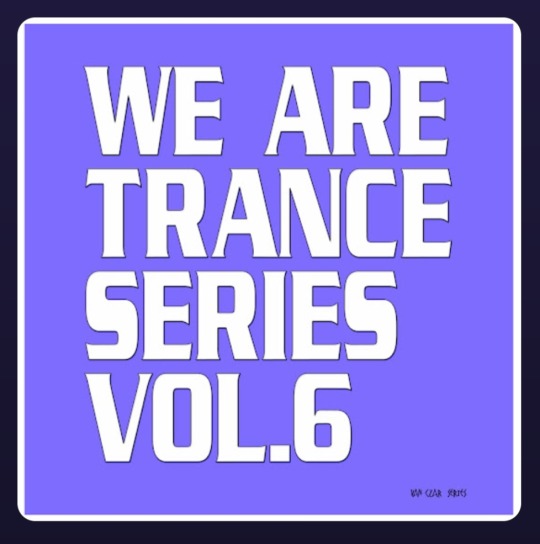


Pick 1 album and discuss.
If you don’t recognize any of these, listen to at least 2 first. I will add music 🎶 links in the comments.
#Alsmusiccafe
Episode 342
01 27 24
#Wynardtage #U2 #publicenemy #siouxieandthebanshees #Alsmusiccafe
3 notes
·
View notes
Text
William Stuart Adamson (11 April 1958 – 16 December 2001) was a Scottish rock guitarist and singer. Adamson began his career in the late 1970s as a founding member and performer with the punk rock band Skids. After leaving Skids in 1981, he formed Big Country and was the band's lead singer and guitarist. The group's commercial heyday was in the 1980s. In the 1990s, he was a member of the alternative country band The Raphaels. In the late 1970s the British music journalist John Peel referred to his musical virtuosity as a guitarist as "a new Jimi Hendrix".[1]
Adamson found international fame with Big Country, a band formed with friend and fellow guitarist Bruce Watson, then employed as a submarine cleaner at Rosyth naval base, and a rhythm section of studio musicians Mark Brzezicki and Tony Butler, found with the help of his label.
Big Country's first hit, 1983's "Fields of Fire", reached the UK's Top 10, and was rapidly followed by the album The Crossing. The album was a big hit in North America (Canada number 4,[7] United States number 18) powered by the single "In a Big Country", which was performed on Saturday Night Live and the Grammy Awards. The video for "In a Big Country" received frequent airplay on MTV and featured the band riding all terrain vehicles in the countryside. Their second album Steeltown appeared in October 1984. The band's third album The Seer (1986) featured Kate Bush on the title track. The first two albums were produced by Steve Lillywhite. The band continued to record studio albums and tour until 2000. Adamson supplied much of the distinctive guitar work, as well as being the lead singer and main songwriter (both music and lyrics). The band's lineup rarely underwent changes, the exception being the departure of drummer Mark Brzezicki who left in the summer of 1989 and was replaced by Pat Ahern. Brzezicki re-joined the band in 1993.
youtube




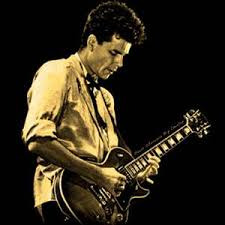
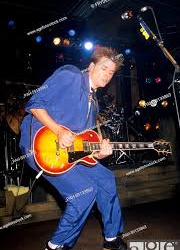
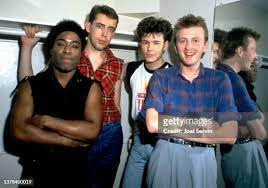
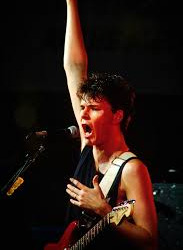
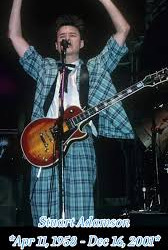
#on this date#date today#today in music#classic rock#today in music history#today in history#on this day#this day#today in the history#this day in music#stuart adamson#big country#born today#today in rock#this day in rock#dead today#dead this day#dead on this day#Youtube
5 notes
·
View notes
Text
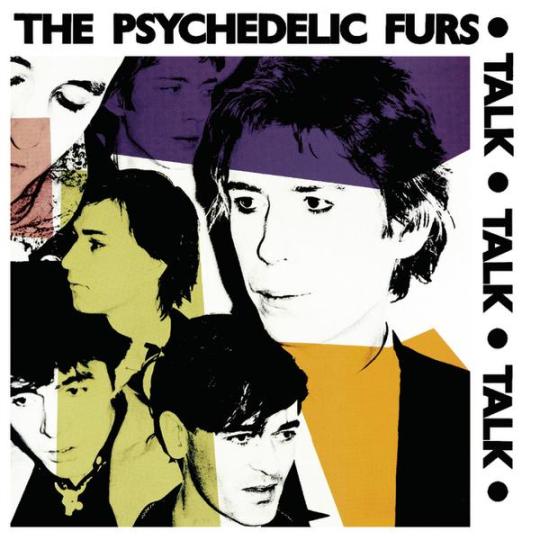
The Psychedelic Furs- Talk Talk Talk (Post-Punk, New Wave) Released: May 15, 1981 [Columbia Records] Producer(s): Steve Lillywhite
youtube
2 notes
·
View notes